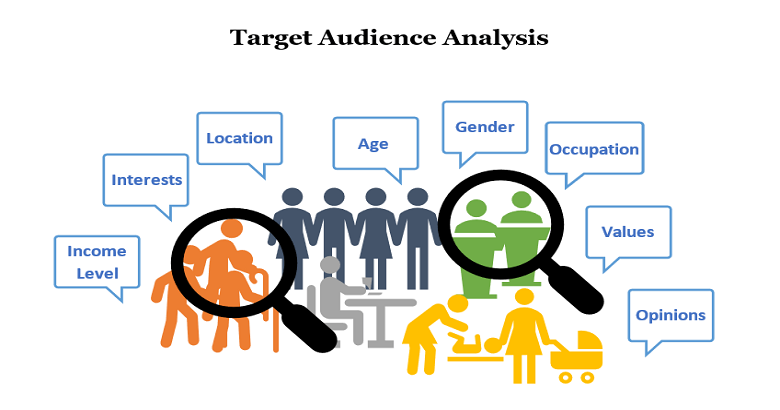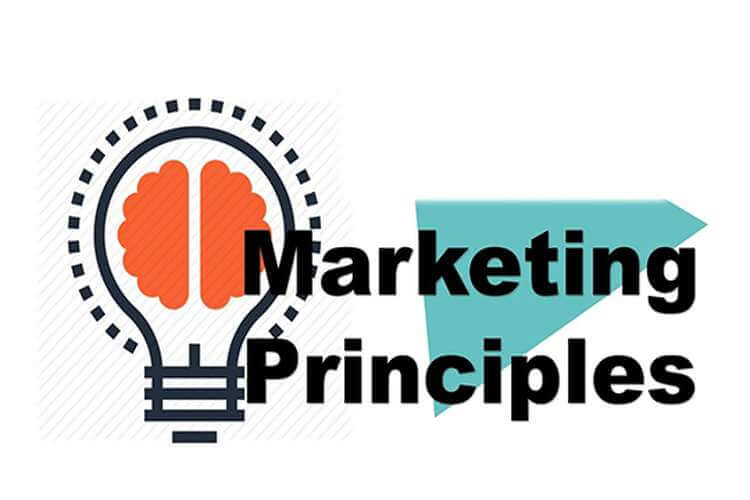Marketing a book isn’t just about announcing its release; it’s about creating a connection between the author and their readers. Author marketing agencies excel at this by using proven strategies tailored to the publishing world. In this blog, we’ll explore seven key marketing principles these agencies use to make books stand out and find their audience.
01: Determining the Target Audience

Before any marketing begins, knowing who the book is for is crucial. Author marketing agencies invest significant time and resources in understanding the target audience. They ask questions like:
- Who will enjoy this book?
- What are their demographics (age, gender, location, etc.)?
- What are their interests, preferences, and reading habits?
- Where do they spend their time online?
For example, if an author writes fantasy novels, the agency might focus on young adults who enjoy epic tales, magic, and world-building. They might also analyze trends in the genre, such as popular tropes or themes, and identify where readers of this genre congregate online, such as Reddit communities, specific Instagram hashtags, or BookTok groups on TikTok. By knowing the audience inside and out, agencies can craft campaigns that speak directly to them and ensure the book resonates deeply with its target readers.
02: Building a Strong Author Brand
A book’s success often hinges on the author’s personal brand. Book marketing agencies work to build a cohesive and authentic image for the author, ensuring it aligns with their books and appeals to readers. This includes:
- Creating an enticing author bio: Highlighting the author’s background, achievements, and unique perspective. This bio is used across platforms, including social media, the author’s website, and book jackets.
- Professional author photos: High-quality visuals play a vital role in establishing credibility. A well-done photo can convey professionalism and approachability simultaneously.
- Consistent visual branding: Agencies often create a cohesive aesthetic for the author’s online presence, including consistent color schemes, fonts, and imagery on websites and social media profiles.
- Establishing a consistent tone: Whether it’s professional, humorous, or inspirational, the author’s voice should remain consistent across all platforms to build trust and recognition.
By crafting a relatable and trustworthy brand, readers feel more connected to the author, making them more likely to purchase their books. For instance, a mystery author might adopt a tone of intrigue and curiosity, while a romance novelist might emphasize warmth and emotion.
03: Developing a Multi-Channel Marketing Strategy
Gone are the days when promoting a book meant just running ads in newspapers. Today, author marketing experts use a multi-channel approach to reach readers wherever they are. This approach ensures that no potential reader is left out. Key channels include:
- Social Media: Platforms like Instagram, Twitter, and TikTok are perfect for engaging with readers. Agencies may run campaigns featuring book giveaways, behind-the-scenes content, or engaging polls. For example, they might share short videos of the author discussing the inspiration behind the book or create visually appealing posts showcasing favorite quotes.
- Email Marketing: Building an email list allows agencies to communicate directly with readers. Newsletters can share updates, sneak peeks, exclusive content, and even personal messages from the author. These emails often include calls to action, like inviting readers to pre-order the book or attend an event.
- Content Marketing: Blog posts, interviews, and guest articles on relevant websites help establish the author’s authority and attract potential readers. Agencies might pitch op-eds or essays by the author to literary magazines and blogs.
- Paid Advertising: Strategic ad campaigns on platforms like Facebook, Amazon, and Google can target specific audiences and drive book sales. For instance, Amazon’s ad platform allows targeting readers who have purchased similar books.
- Public Relations: Securing media coverage through press releases, interviews, and features in newspapers or magazines helps build credibility and reach broader audiences.
04: Leveraging Influencers and Reviews
Influencers and reviewers hold significant sway in the book community. Author marketing agencies often collaborate with:
- Book Bloggers: These individuals can review books and share them with their loyal followers. Bloggers often have niche audiences, making them ideal for targeting specific genres or demographics.
- Social Media Influencers: Platforms like Instagram and TikTok are home to many “Bookstagrammers” and “BookTok” creators who can generate buzz around a book. A single mention from a popular influencer can lead to significant spikes in sales.
- Goodreads Reviewers: Securing positive reviews on Goodreads, a popular book-focused platform, can boost visibility and credibility. Agencies often run campaigns to encourage readers to leave honest reviews on this platform.
These partnerships help build trust with potential readers, as recommendations from trusted sources often carry more weight than traditional advertisements. Agencies also provide influencers with ARCs (Advanced Reader Copies) to ensure early reviews create excitement before the book’s official release.
05: Organizing Virtual and In-Person Events
Events create opportunities for readers to connect with authors on a personal level. Author marketing agencies often organize:
- Virtual Book Launches: Online events that include live readings, Q&A sessions, and giveaways. These events are often hosted on platforms like Zoom, Instagram Live, or Facebook Live to maximize accessibility.
- Author Interviews and Webinars: These provide platforms for authors to discuss their work and interact with fans. For instance, a mystery writer might host a webinar on the art of crafting suspenseful plots.
- Book Signings and Readings: In-person events at bookstores, libraries, or literary festivals can generate excitement and foster community engagement. Agencies also work to ensure these events are well-publicized locally and online.
By creating memorable experiences, these events help deepen the relationship between authors and readers, turning casual fans into loyal supporters.
06: Leveraging the Power of Pre-Launch Campaigns
The success of a book launch often depends on what happens before the release date. Author marketing agencies meticulously plan pre-launch campaigns that include:
- Building Anticipation: Sharing cover reveals, teaser excerpts, and countdowns on social media create excitement. Agencies might also create “coming soon” graphics or video trailers to generate buzz.
- Securing Pre-Orders: Encouraging readers to pre-order the book helps boost its ranking on release day. Pre-orders signal demand to retailers, often leading to better placement on store shelves or online platforms.
- Creating Buzz: Engaging with early readers, beta reviewers, and advanced review copy (ARC) recipients ensures positive word-of-mouth spreads before the launch. Agencies often host ARC giveaways to generate more reviews and online chatter.
Pre-launch efforts lay the groundwork for a strong start, maximizing the book’s visibility and sales potential. Additionally, some agencies partner with retailers to arrange special promotions or bundle deals for early buyers.
07: Analyzing and Optimizing Campaign Performance
No marketing campaign is complete without analyzing its performance. Author marketing agencies regularly monitor key metrics to see what’s working and what’s not. This might include:
- Social Media Engagement: Metrics like likes, comments, shares, and follower growth provide insights into what types of content resonate most with the audience.
- Sales Data: Tracking how different campaigns impact book sales helps identify the most effective strategies.
- Website Traffic: Measuring visits, clicks, and conversions on the author’s website shows how well the marketing funnel is working.
- Email Open Rates and Click-Through Rates: These metrics reveal how engaging email campaigns are and whether readers are taking desired actions.
By using tools like Google Analytics, Facebook Insights, and Amazon Author Central, agencies can refine their strategies for better results. For instance, if a Facebook ad is underperforming, they might tweak the targeting, adjust the visuals, or revise the ad copy to improve its effectiveness. Regular analysis ensures campaigns stay dynamic and responsive to audience behavior.
Wrapping Up
Promoting a book is both an art and a science, and author marketing agencies are experts at combining these elements to help authors succeed. By understanding the target audience, building a strong author brand, employing multi-channel strategies, and leveraging data-driven insights, they ensure books not only reach readers but also leave a lasting impression. Whether you’re an author looking for guidance or simply curious about the process, these seven principles highlight the thoughtful work that goes into turning a book into a bestseller.
Frequently Asked Questions
1. How do author marketing agencies handle genre-specific challenges in book promotion?
Author marketing agencies tailor their strategies to the unique demands of different genres. For example, promoting a thriller may involve creating suspenseful teasers and targeting fans of crime dramas, while a children’s book campaign might focus on partnerships with parenting bloggers and interactive social media content for families. Agencies also keep track of genre trends and collaborate with influencers or reviewers who specialize in specific niches, ensuring that the book reaches the right audience effectively.
2. Can author marketing agencies help with self-published books?
Absolutely! Many author marketing agencies specialize in helping self-published authors navigate the complexities of book promotion. They assist with everything from creating professional-looking cover designs to developing marketing campaigns that rival those of traditionally published books. Agencies also leverage online tools like Amazon ads, BookBub promotions, and social media campaigns to boost visibility for self-published works.
3. How do agencies measure the success of a book marketing campaign?
Agencies use a mix of quantitative and qualitative metrics to assess campaign performance. These include sales figures, online engagement (likes, comments, shares), website traffic, email open rates, and conversion rates. They also monitor the book’s ranking on platforms like Amazon or Goodreads. Importantly, agencies look beyond numbers to evaluate reader feedback and the buzz generated by the campaign, ensuring the results align with the author’s goals.
4. What role does SEO play in book marketing?
SEO (Search Engine Optimization) is crucial for increasing a book’s discoverability online. Author marketing agencies optimize the author’s website, blog posts, and online profiles to rank higher in search engine results. They research and use relevant keywords, such as the book title, genre, and themes, to attract organic traffic. Additionally, they might collaborate with bloggers and reviewers to create backlinks, further enhancing the book’s visibility.
5. How do agencies handle negative reviews or criticism?
Author marketing agencies view negative reviews as an opportunity to improve and engage. They advise authors not to respond defensively but rather to focus on the constructive aspects of the feedback. Agencies might also amplify positive reviews to balance the narrative and ensure potential readers see the book’s strengths. By fostering authentic reader relationships and maintaining a positive author image, they turn challenges into opportunities for growth.



